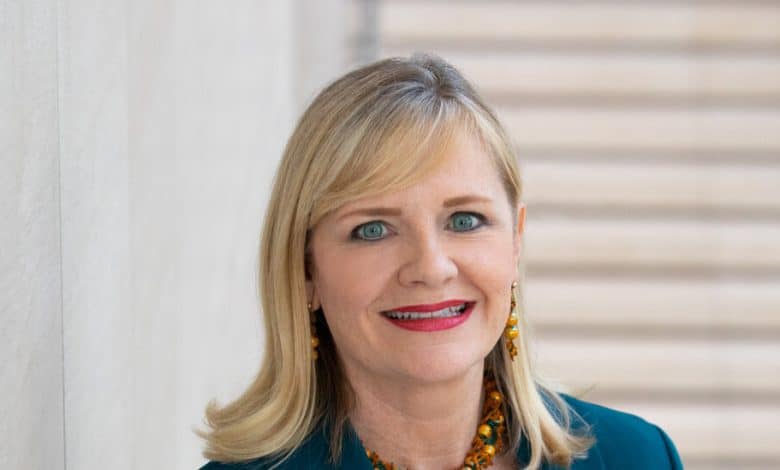Kim Noltemy, Orchestra Veteran, Is Tapped to Lead L.A. Philharmonic

The Los Angeles Philharmonic’s history of inventive programming and strong finances have made it the envy of orchestras around the United States.
But recently, the ensemble has been going through a period of abrupt change. Chad Smith, the ensemble’s former president and chief executive, left last year to run the Boston Symphony Orchestra. Gustavo Dudamel, its celebrated music and artistic director, will depart for the New York Philharmonic in 2026.
On Wednesday, though, the orchestra said it had found a leader who can help put it back on track. Kim Noltemy, a veteran administrator, will become the Los Angeles Philharmonic’s next president and chief executive, starting in July.
Noltemy, 55, who has led the Dallas Symphony Orchestra since 2018, said that she hoped to build on the Philharmonic’s legacy of innovation.
“The potential for the Los Angeles Philharmonic to grow, thrive and make a huge impact in changing how people think about music and how music affects their lives is enormous,” she said in an interview.
Thomas L. Beckmen, the chairman of the Philharmonic’s board of directors, said that Noltemy rose to the top of the list of candidates because of her experience. Before Dallas, she held leadership posts at the Boston Symphony Orchestra.
“Of all the people we interviewed, she was the most prepared,” Beckmen said in an interview. “Sometimes, I thought she knew more about us than I knew about us.”
Noltemy will face several immediate challenges, including helping to find a successor to Dudamel, one of the world’s most in-demand maestros, who has led the ensemble since 2009 and has been a key force behind its box-office success and expansive music education programs.
Beckmen said the search could take “a couple years more, or maybe longer,” but that he was confident the orchestra could find someone who would be a draw like Dudamel.
“Dudamel is great, and so is the orchestra here in L.A., which is, if not the best, certainly at the top of the field,” he said. “That’s not going away.”
Asked whether the ensemble was interested in appointing a woman, Beckmen declined to comment. (Across the United States, women remain considerably underrepresented among music directors at top orchestras.)
Noltemy said that “all talented conductors” would be considered, regardless of gender or race. “This orchestra,” she added, “is really so focused on the idea that the L.A. Phil has to represent its community, and its community is incredibly diverse.”
Dudamel said in a statement on Wednesday that he looked forward to “welcoming Kim into our L.A. Phil family.”
“Our extraordinary musicians and organization have shown the world a powerful new vision for what an orchestra can be, and how it can impact the community around it,” he said. “I am confident we will continue to push ourselves to even greater heights in the years to come.”
In Dallas, Noltemy has built a reputation as a community-focused leader. She has expanded music education programs and worked to increase civic pride in the ensemble, including by staging more small-scale performances outside the concert hall.
During her tenure, the orchestra has hired more women and people of color as conductors, composers and guest performers. The administrative staff has also grown more diverse; women make up a majority of the senior leadership team.
In Los Angeles, Noltemy said, she would work to expand the Youth Orchestra Los Angeles, known as YOLA, which Dudamel helped start, and which is modeled on El Sistema, the Venezuelan social and artistic movement. She is also eager for the Philharmonic to play a prominent role when Los Angeles hosts the Summer Olympics in 2028.
The Philharmonic in a relatively strong position compared with other American orchestras. As of March, it was averaging about 89 percent attendance, back to where it was before the pandemic, even as the number of subscribers has fallen to 6,409, from 8,791.
Noltemy follows in a line of pathbreaking chief executives. Ernest Fleischmann, who led the orchestra from 1969 to 1998, revitalized its lucrative summer programming at the Hollywood Bowl, fought to build Disney Hall and hired a young Esa-Pekka Salonen to be its music director. Deborah Borda, who led the orchestra from 2000 to 2017, built on those successes, opening the hall, hiring Dudamel, fostering ties with the city and championing new music. Smith, a protégé of Borda’s, helped drive the orchestra’s unconventional approach to programming.
Beckmen said that he hoped Noltemy would serve for a decade or longer. She would like to stay until she retires.
“The Los Angeles Philharmonic has long been the most amazing and interesting place,” she said. “I see this as the culmination of my career.”